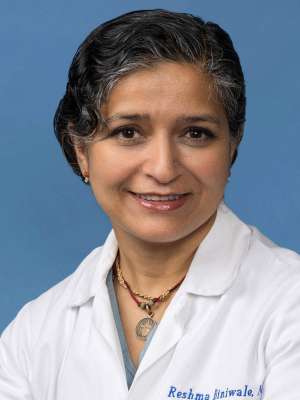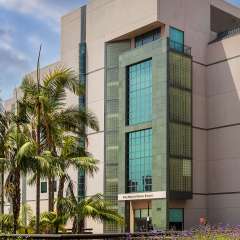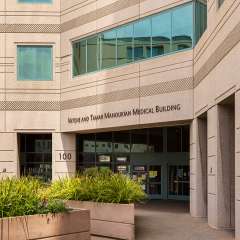
Reshma M. Biniwale, MD, MS, MCHS
(she/her)
- Cardiac Surgery
About
Reshma Biniwale graduated from General Surgery training program at the University of Massachusetts in 2005. Following this she underwent specialized Cardiac Surgery Fellowship training at Montefiore Medical Center NY from 2005-2008. Her chief interest lay in Congenital Cardiac Surgery for which she moved to Children’s Hospital Los Angeles for a year. In 2009 Dr. Biniwale joined UCLA. Here she gained UNOS credentialing in heart and lung transplantation and expertise in implantation of Pediatric ventricular assist devices, including total artificial heart. Dr Biniwale is board certified in General Surgery and Thoracic Surgery. She is the first fellowship trained candidate to be board certified in Congenital Cardiac Surgery.
Dr. Biniwale is actively involved in the program for pediatric DCD (donor after circulatory death) program. Her research activities have been in the field of mechanical circulatory support for children, heart and lung transplantation. She has a special interest in frailty and its impact on patient outcomes. Currently she is studying the outcomes of normothermic regional perfusion on donor heart function. Dr. Biniwale provides surgical care for all pediatric patients as well as continued care for adolescents and adults with congenital heart disease.
Languages
Education
Medical Board Certifications
Fellowships
Residencies
Internship
Degree
Recognitions
- Super doctors, Southern California, 2025
- Super Doctors® Southern California, 2022 - 2025
- Top Doctors, Los Angeles Magazine, 2022, 2023
- Rachel Cooper Foundation Research Award
- See More
Locations

Ahmanson/UCLA Adult Congenital Heart Disease Center
Medical Services
Areas of Focus
Videos
Research
Interests
- Clinical Outcomes Research
- Normothermic regional perfusion for DCD hearts
- Ventricular Assist Devices in Pediatric Population
- Pediatric Cardiopulmonary Transplantation; BIPACS Trial: NIH Funded Study
- Medical and Surgical Education
- Quality Improvement Projects in Pediatric Cardiothoracic Surgery
- Lung in a Box
- Heart in a Box
- Total Artificial Heart
Publications
In the News
- Expert opinion: First Heart and thymus transplant CNN Health March 10, 2022. (CNN)
- The Thoracic Surgery Foundation
- 2021 Happy Heart Festival - Transplants Who, What, When, Where, Why (YouTube)
Note: News links may expire without notice.
Insurance
- Aetna
- Anthem Blue Cross
- Blue Shield of California
- Centivo
- Cigna
- First Health
- Health Net of California
- Interplan (part of HealthSmart)
- Medicare Advantage
- MultiPlan
- UFCM Health System
- Prime Health Services
- Private Healthcare Systems (PHCS)
- TRICARE
- UnitedHealthcare
The list of health care plans above may not be comprehensive and could change.
Please contact your benefits coordinator or health insurance company directly to verify coverage.
Visit our health insurance information page for more details.
Recognitions
- Super Doctors® Southern California, 2022 - 2025
- Top Doctors, Los Angeles Magazine, 2022, 2023
- Rachel Cooper Foundation Research Award
- TSF Edwards Lifesciences Foundation Every Heartbeat Matters Award

